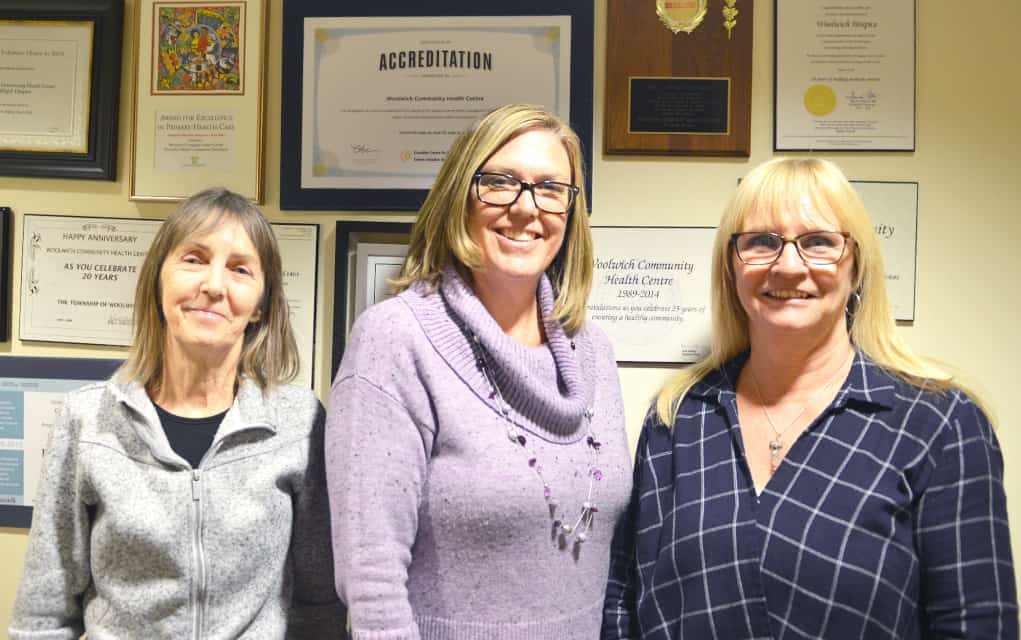Identifying a gap between a growing youth population in the region’s townships and the services available to them, local agencies will be turning a foundation grant into improved offerings.
The Woolwich Community Health Centre (WCHC), in partnership with the Woolwich Community Services and Wilmot Family Resource Centre, will be using funds from the Lyle S. Hallman Foundation to start a new program aimed at improving the lives of kids 6-12 years of age through the Rural Child Wellbeing Project.
“We will each be hiring a child and youth leader,” said Lynda Kohler, program coordinator at WCHC. “This will not be a cookie-cutter approach; we wanted to look at each township uniquely because we know that there’s some really great programming happening, and we want to complement that.”
While the WCHC is currently in the hiring process, the organization expects to have the new staff in place for March 1. The increase in staff is in response to the increasing demand of health services.
A rural youth and young adult assessment showed an increased number of youth aged 0-14 in the 2016 census data and confirmed the rural youth population is growing faster than the urban areas. The study was carried out in Woolwich, Wellesley, Wilmot and North Dumfries.
In Woolwich Township, the population of youth aged 0-14 increased 21.1 per cent, while Wellesley saw an increase of 26.6 per cent. Across the Region of Waterloo, the youth population grew 17.8 per cent.
“The agencies really do have a limited amount of staff out there on the ground,” said Kohler. “As the townships have grown in size, our resources haven’t. So having the fulltime child and youth worker in each township will really help in terms of building new partnerships with agencies that might want to offer services in the rural townships as well.”
Local and international research shows that there are more challenges rural families face in comparison to their urban peers in regards to these health services due to stigma, transportation, isolation, and lack of service offerings.
The rural assessment identified that youth self-reported poorer mental health than the Ontario average, with 14.1 per cent of rural youth reporting having seriously thought about suicide. Contributing factors that youth identified include difficulty accessing services, not reaching out for help due to stigma, and transportation.
In response to the challenges faced solely by rural townships, the groups will take a very close examination of each area and improve their programs accordingly.
“The settlement areas vary across the townships,” said Kohler. “Some communities are quite isolated. For example in Wellesley, you’ve got Linwood that is quite far from the village of Wellesley. So just looking to figure out across each of the townships, exactly what the needs are.
“Where are children living? Are there children that have greater barriers to accessing services? And how do we connect them and engage them with healthy programming and connecting them with resources?”
“I think we’re all just really excited because I found in my township, it’s hard sometimes to get planning for youth, and they so deserve it,” said Trisha Robinson, executive director of Wilmot Family Resource Centre. “So we’re just really excited to be provided this opportunity.”
Other initiatives the organization will take on include parental support programs, including a social worker who’ll operate all four townships to help parents identify the challenges their children might be facing, along with creative ways to address those issues.
The worker’s classes will focus on specific categories: health and wellness, for example healthy eating, mental wellbeing, such as helping a loved one deal with depression, and fitness classes, like mindfulness yoga or pilates.
They also intend to use the funding to expand on some of these programs that they already have set in place. For example, one mental health program focuses on anxiety specifically.
“We have a very successful program that we offer in some of the rural schools,” explained Kohler. “We want to expand that across the four townships, so that’s a program that increases the awareness of anxiety in children, which we see as a fairly prevalent diagnosis in primary care and across the community. I think that’s common with the rest of the region and the province. We want to continue doing that program throughout the four townships.”
“For this age group it is preventative, and it’s getting people to know their community and be active in their community at a very young age,” added Kelly Christie of Woolwich Community Services.
If anyone wants to offer ideas of activities, partners or programs that they would like to see in the community, the group is open to suggestions online or emailing ruralchildwellbeing@wchc.on.ca.









